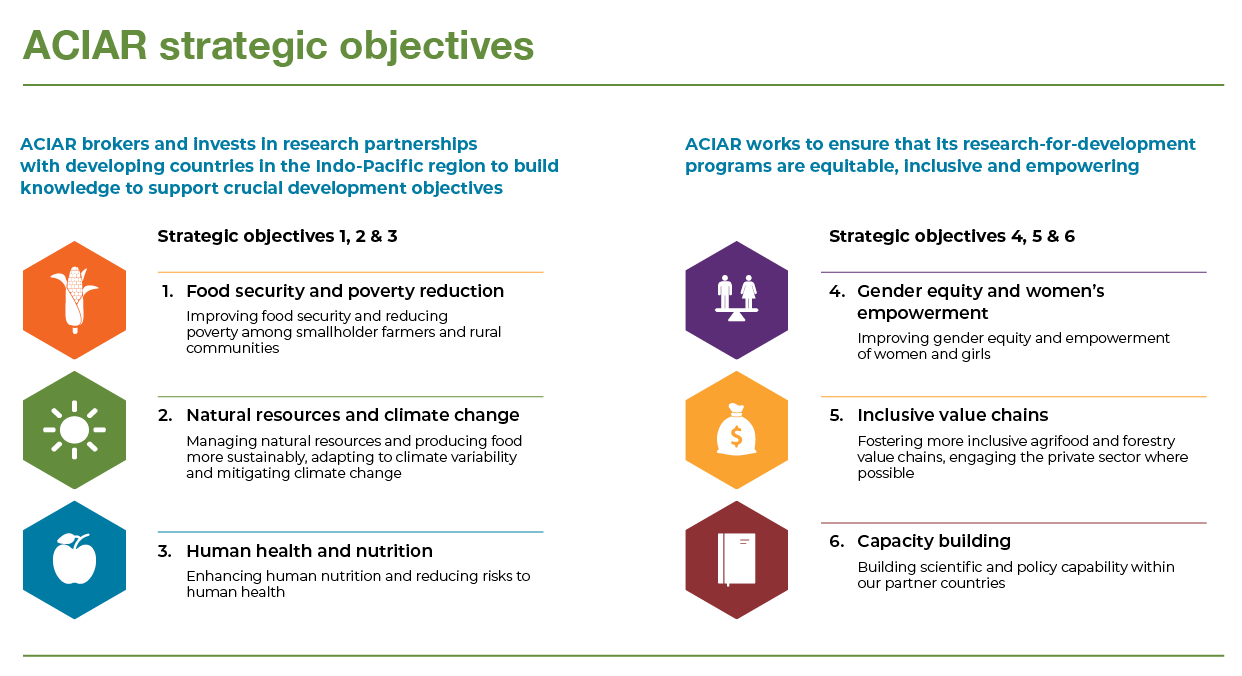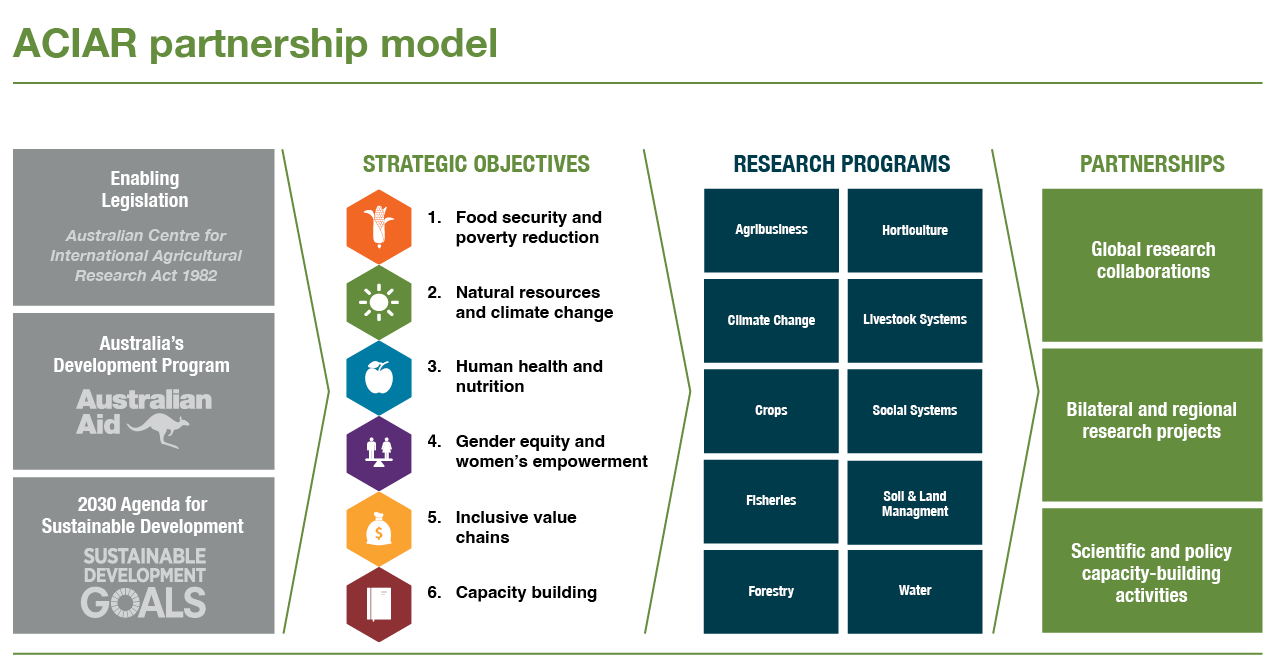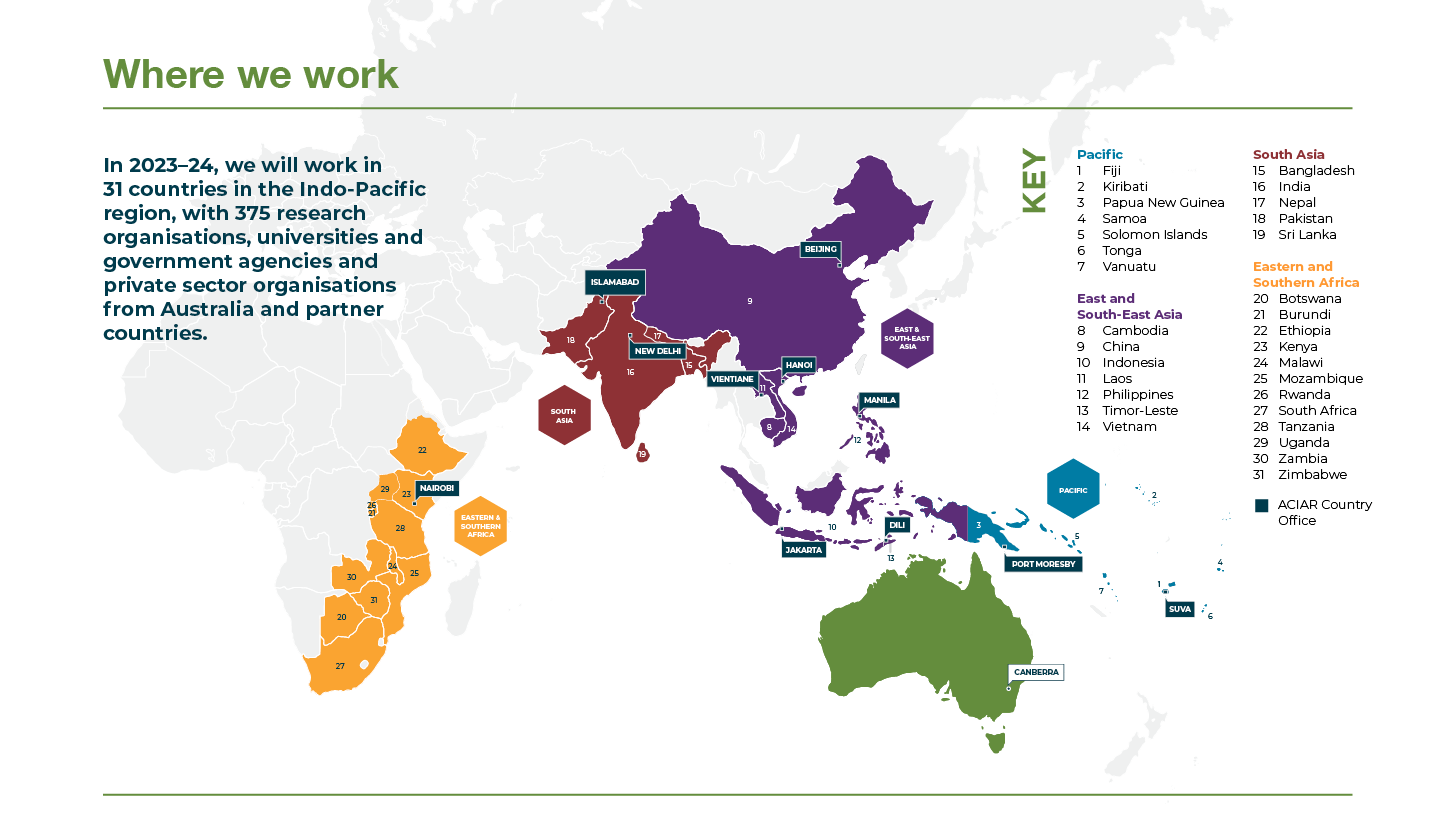The ACIAR business model of brokering science partnerships in agriculture, fisheries and forestry between the Australian innovation system and our neighbours in the Indo-Pacific region is as relevant today as it was when ACIAR was established in 1982.
Ensuring that the best of Australian science can be combined with local knowledge and implemented effectively in the field depends on the quality and durability of partnerships between farmers, researchers, industry and government. Our outstanding track record of building and sustaining deep, trusting partnerships over the last 40 years is now a great strategic asset.
As the capabilities and capacity of our partner countries evolve, so too do our partnerships. Within this evolving context, our operational model continues to deliver against our enabling legislation, Australia’s development program and the UN Sustainable Development Goals, through 6 strategic objectives and 3 key areas of work:
1. Global research collaborations
We develop and foster partnerships and relationships with international research and development agencies, the most significant being CGIAR. We also develop and foster partnerships with development donors and the private sector to pursue shared goals and ensure that ACIAR-funded research results are implemented at scale.
2. Bilateral and regional research projects
We generate knowledge from ACIAR-funded projects and programs to empower smallholder farmers, extension agents, scientists, small and medium enterprises, and policymakers to take on the intersecting challenges of growing more and healthier food and reducing poverty while using resources sustainably.
3. Scientific and policy capacity-building activities
We identify and establish opportunities for individuals and institutions in partner countries to boost technical, policy and management skills in agriculture, fisheries, forestry and management of land and water resources.
The world continues to be affected and influenced by inter-related and complex global challenges of climate change, economic volatility and urbanisation. The primary beneficiaries of ACIAR investment, smallholder farmers in the Indo-Pacific region, and their households and communities, typically have fewer resources and less capacity to manage the risks associated with global challenges.
The ACIAR operating environment is concurrently affected by weather extremes, natural disasters, food and energy shortages, civil unrest and geopolitical tension.
The variability of influencing factors in each partner country means that our programs for research and capacity building must be developed to reflect partner priorities, and programs must be flexible to adapt to sudden and significant changes in the operating environment. We are guided by the ACIAR 10-Year Strategy 2018–2027, and in the 2023–24 year, we will focus on the recommendations of the mid-term review of the strategy to ensure ACIAR remains in a position to deliver on its mandate in a changing world.
To contribute meaningfully to transformational change in food systems, which are characterised by high levels of uncertainty, ACIAR will increase its investment in mission-directed, multi-disciplinary, transdisciplinary and cross-program initiatives.
Our partnership models will be reviewed and redeveloped during this year and into subsequent years. The new models will reflect and embrace the growing research and leadership strengths of our country partners, and maximise the mutual benefit achieved from international research collaborations between Australian and country partner institutions.
ACIAR plays an important role in delivering on the objectives of Australia’s International Development Policy, launched in August 2023, not only in terms of material contributions to development but also to ensure that the research and capacity building in which we invest is based on genuine partnership, and supports peaceful and prosperous development in our region.
Regional stability and economic security
Australian security and economic interests remain linked with the countries of our region. The Australian Government’s investment in agricultural development, through ACIAR, supports regional processes for promoting peace and economic growth, ensuring Australia is a trusted science partner and leader in the agriculture and natural resources sectors.





